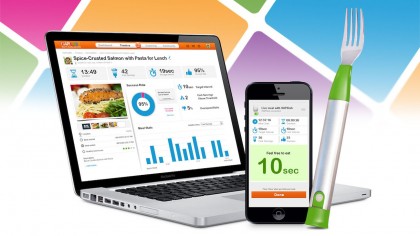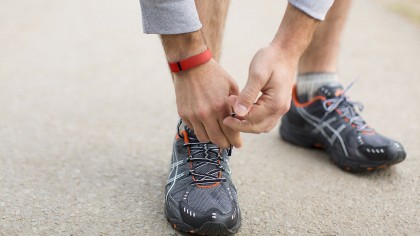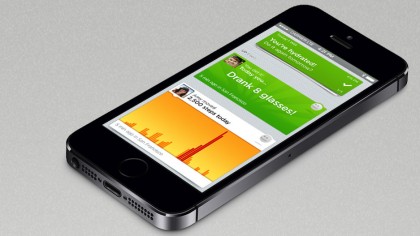Tech trends for 2014: what's in store this year?
The gadgets are yet to come, but some of the trends in tech for 2014 are becoming clear

However, it's how wearables integrate with other devices that will improve most in 2014. "Most wearables pair with an app that shows your activity over time, letting you spot patterns and change what you do," says Curran, "but the Jawbone UP takes this a step further with its UP platform, importing data from other services and letting those services access the data from the UP bracelet." UP currently swaps data with apps like RunKeeper, Strava, Withings (WiFi scales) and the IFTTT (If This Then That) app, which integrates with connected gadgets like the Philips Hue lights and Belkin WeMo switch.
9. Advertisers cotton on to 'movement data'
"Wearable technology, particularly health-related devices, have finally become affordable, accurate and accessible – 2013 was just the beginning," says Norm Johnston, Chief Digital Officer for global media network Mindshare Worldwide.

"Brands will truly begin to explore their role in this new space, whether by co-developing new products and applications, or inserting relevant advertising into the experiences." Johnston suggests that data from devices like the Jawbone UP could be used by brands to customise advertising; Nytol could target you if you're not sleeping well, or life insurance companies could develop tailor-made walking routes to increase your health.
"Brands will need to redefine boundaries and walk a fine line between opt-in relevance versus annoying people," says Johnston. "Consumers will also have to gain tighter control of their data, and self-select which brands they will allow into this new universe of IP-enabled devices."
10. Smartphones will retain their crown
Google Glass, Galaxy Gear and wearables galore will get a lot of publicity in 2014, but they won't eat away at the dominance of smartphones. "The potential benefits of wearable technology to businesses and consumers alike are obvious," says Gary Calcott, Technical Marketing Manager at Progress Software.

"They could allow surgeons to access information they need as they operate on patients, perhaps helping to lower mortality rates considerably in the process," he says, adding that 'smart glass' could also enable forklift truck drivers to access real-time updates on stock in a warehouse. "However, if you delve deeper and look into the back-end that allows applications on wearable devices to run, you'll find that it will almost certainly be running on either a smartphone or a tablet device. Almost all of the heavy lifting will be done by the smartphone, not the wearable device."
In short, the success or otherwise of wearables will depend totally on apps, not the devices themselves.
Sign up for breaking news, reviews, opinion, top tech deals, and more.
- Now why not read Why aren't all our smartphones waterproof right now?

Jamie is a freelance tech, travel and space journalist based in the UK. He’s been writing regularly for Techradar since it was launched in 2008 and also writes regularly for Forbes, The Telegraph, the South China Morning Post, Sky & Telescope and the Sky At Night magazine as well as other Future titles T3, Digital Camera World, All About Space and Space.com. He also edits two of his own websites, TravGear.com and WhenIsTheNextEclipse.com that reflect his obsession with travel gear and solar eclipse travel. He is the author of A Stargazing Program For Beginners (Springer, 2015),